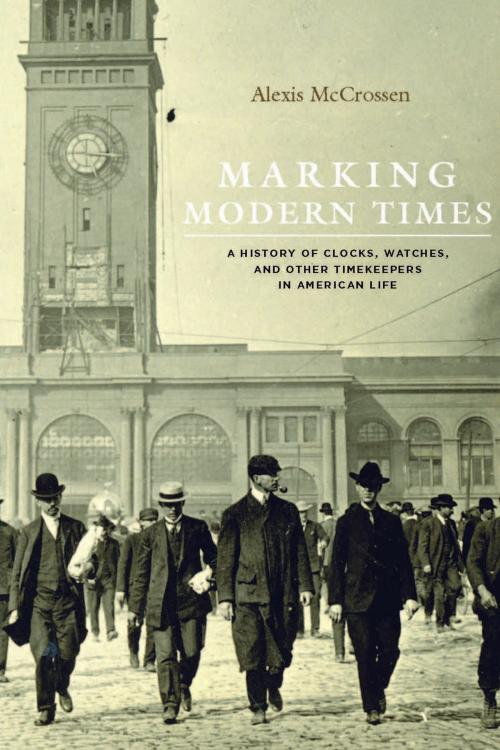Marking Modern Times
A History of Clocks, Watches, and Other Timekeepers in American Life
Nonfiction, Science & Nature, Technology, Engineering, History, Americas, United States| Author: | Alexis McCrossen | ISBN: | 9780226015057 |
| Publisher: | University of Chicago Press | Publication: | May 1, 2013 |
| Imprint: | University of Chicago Press | Language: | English |
| Author: | Alexis McCrossen |
| ISBN: | 9780226015057 |
| Publisher: | University of Chicago Press |
| Publication: | May 1, 2013 |
| Imprint: | University of Chicago Press |
| Language: | English |
The public spaces and buildings of the United States are home to many thousands of timepieces—bells, time balls, and clock faces—that tower over urban streets, peek out from lobbies, and gleam in store windows. And in the streets and squares beneath them, men, women, and children wear wristwatches of all kinds. Americans have decorated their homes with clocks and included them in their poetry, sermons, stories, and songs. And as political instruments, social tools, and cultural symbols, these personal and public timekeepers have enjoyed a broad currency in art, life, and culture.
In Marking Modern Times, Alexis McCrossen relates how the American preoccupation with time led people from across social classes to acquire watches and clocks. While noting the difficulties in regulating and synchronizing so many timepieces, McCrossen expands our understanding of the development of modern time discipline, delving into the ways we have standardized time and describing how timekeepers have served as political, social, and cultural tools in a society that doesn’t merely value time but regards access to time as a natural-born right, a privilege of being an American.
The public spaces and buildings of the United States are home to many thousands of timepieces—bells, time balls, and clock faces—that tower over urban streets, peek out from lobbies, and gleam in store windows. And in the streets and squares beneath them, men, women, and children wear wristwatches of all kinds. Americans have decorated their homes with clocks and included them in their poetry, sermons, stories, and songs. And as political instruments, social tools, and cultural symbols, these personal and public timekeepers have enjoyed a broad currency in art, life, and culture.
In Marking Modern Times, Alexis McCrossen relates how the American preoccupation with time led people from across social classes to acquire watches and clocks. While noting the difficulties in regulating and synchronizing so many timepieces, McCrossen expands our understanding of the development of modern time discipline, delving into the ways we have standardized time and describing how timekeepers have served as political, social, and cultural tools in a society that doesn’t merely value time but regards access to time as a natural-born right, a privilege of being an American.















